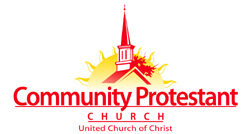The Pastor’s Study – April 2023
I’ve been invited by Imam Azfar of Islamic Foundation North to take part in a panel discussion at their interfaith Iftar later this week. For our Muslim neighbors, this is their holiest month of Ramadan, which is the month when the Quran was dictated to the Prophet Mohammed. During this month, Muslims observe a fast from dawn to dusk. The Iftar is the daily breaking of the fast at sunset. It is meant to be a communal affair, a shared experience for families and faith communities alike.
The panel participants were asked to prepare to discuss the practice of fasting within their tradition. This question intrigued me, mostly because observance of such spiritual practices has been increasingly popular among Protestant Christians in recent years. The question I have been thinking about is WHY have Protestants been embracing practices that they would have dismissed some 20 years ago as ‘too Catholic’?
While a scientific opinion study might be more conclusive about the reasons why, I will posit a couple of thoughts I’ve had while considering my remarks for the panel. The first reason I believe more Protestants have embraced fasting as a spiritual discipline is that it works. By that, I mean that Christians that adopt a practice of fasting find that it makes for a deeper personal journey through a season like Lent. As a spiritual leader I find this particularly encouraging, because it means that the person who’s fasting has made a voluntary commitment to let their faith interrupt their usual routines and appetites, something that we are rarely taught to curb or control by the outside world. The world tries to sell us solutions to any and all of our problems, even ones for which there is only a spiritual remedy. Through a practice of fasting we practice trusting in God to provide all our needs while clearing out what may have been getting in the way of our relationship with God.
Second, I believe that we are in a time when we are generally less tribal as Christians. It’s much less likely that a person born today will belong to the same faith tradition in which they were raised, IF they are raised in a faith tradition at all. Congregations like ours are an amalgam of folks from many different backgrounds, including: Roman Catholic, Lutheran, Presbyterian, and, yes, even life-long UCC members. This mix, I believe, keeps us focused on Jesus and less on ‘the way we do things around here.’ Congregations are alive. As living beings, they should be expected to grow, change, and adapt to meet the needs of those inside the church so that they can turn outward.
Finally, I believe that the practice of fasting, especially from food, can help us learn empathy and compassion. We live in a place and time where few of us have truly known what it is like to be involuntarily hungry. While we are right to give God thanks and praise for providing our needs, we are dead wrong if we fool ourselves into believing that somehow we are more deserving. We know that there are others who are more faithful than we are who struggle to meet basic needs, while there are others with no faith or even open hostility to God who have earthly riches beyond measure. Fasting helps us remember to separate what appears to be blessing and success from the reality that God wants us to grow in faith and in our service to others.
While Lent is traditionally a time for Christians to practice fasting together, it can be a helpful practice any time of year you are feeling distant or disconnected from God. That it’s a practice across faiths tells me there’s a reason for it!

